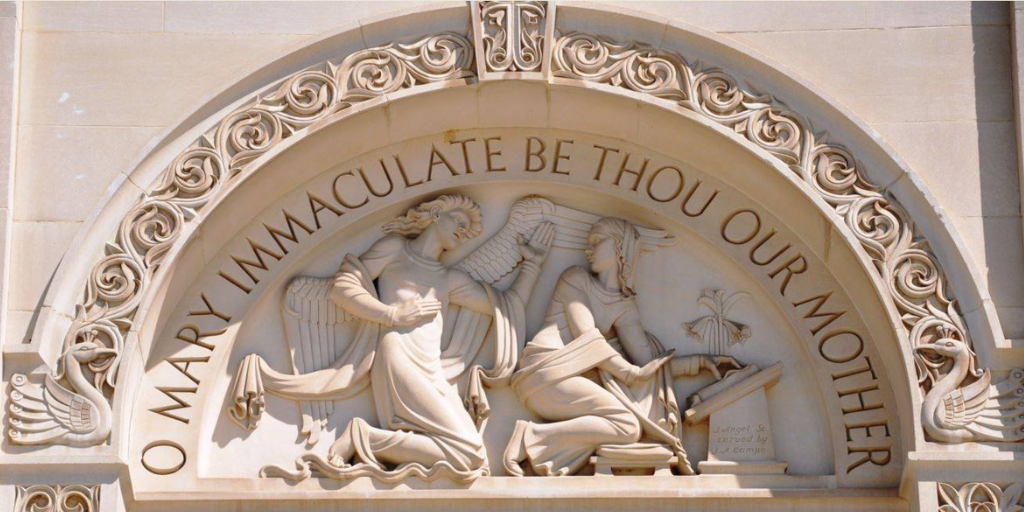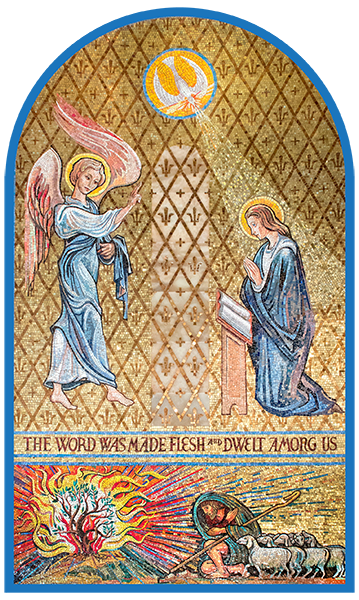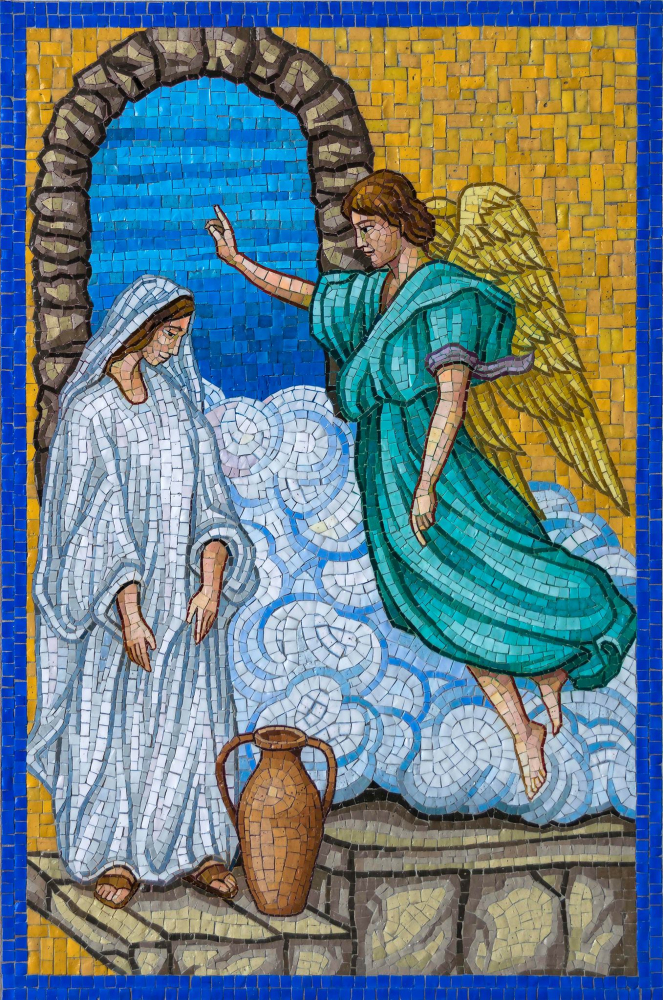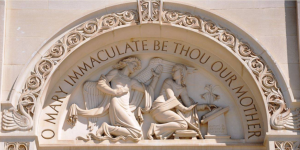
“In the sixth month the angel Gabriel was sent by God to a town in Galilee called Nazareth, to a virgin engaged to a man whose name was Joseph, of the house of David. The virgin’s name was Mary.” – Luke 1:26-27
This year on April 8, the Church celebrates the Solemnity of the Annunciation of the Lord, when the angel Gabriel appeared to Mary and told her that she would give birth to the Savior of the world. That moment marked the beginning of a new era in human history: when God became flesh to dwell among us. As we observe this feast day, we invite you to reflect on the Holy Fathers’ insights about its significance within the story of divine redemption.

A Turning Point in History
“The Annunciation, recounted at the beginning of St Luke’s Gospel, is a humble, hidden event – no one saw it, no one except Mary knew of it – but at the same time it was crucial to the history of humanity. When the Virgin said her ‘yes’ to the Angel’s announcement, Jesus was conceived and with him began the new era of history that was to be ratified in Easter as the ‘new and eternal Covenant.’
In fact, Mary’s ‘yes’ perfectly mirrors that of Christ himself when he entered the world, as the Letter to the Hebrews says, interpreting Psalm 40[39]: ‘As is written of me in the book, I have come to do your will, O God’ (Heb 10: 7). The Son’s obedience was reflected in that of the Mother and thus, through the encounter of these two ‘yeses’, God was able to take on a human face.” – from Pope Benedict XVI’s message on March 25, 2007
“The passage from Luke’s Gospel that we have heard (Lk 1:26-38) tells us the decisive moment in history, the most revolutionary. It is a turbulent situation… history turns upside down… It is the moment that everything changes, everything, from the root… The Antiphon that marks the meaning today is the root of Jesse, ‘from which a shoot will be born.’ God lowers himself, God enters history and does so in his original style: a surprise. The God of surprises surprises us (again).” – from Pope Francis’ message on December 20, 2018
The Source of Spiritual Joy
“The Solemnity of the Annunciation takes us back to the source of spiritual joy, which is the Incarnation of the Son of God… Today we want to thank God in a special way for the gift of salvation, which Christ brought to the world by his Incarnation: ‘Et Verbum caro factum est – The Word became flesh.’ From contemplation of this mystery all believers can draw renewed spiritual energy for proclaiming and constantly bearing witness to Christ, our only salvation, and for faithfully serving the ‘Gospel of life’ that he entrusts to us.
Faced with the culture of death and attacks against human life that, unfortunately, are increasing, may we never fail to defend it at every stage, from the first moment of conception to its natural end. May humanity experience a new springtime of life, with respect and acceptance for every human being, in whose face shines the image of Christ!” – from Pope John Paul II’s message on March 25, 2001
An Enduring Moment of Faith

“[T]he feast [of the Annunciation of the Lord] was and is a joint one of Christ and of the Blessed Virgin: of the Word, who becomes Son of Mary (Mk. 6:3), and of the Virgin, who becomes Mother of God. With regard to Christ, the East and the West, in the inexhaustible riches of their liturgies, celebrate this solemnity as the commemoration of the salvific ‘fiat’ of the Incarnate Word, who, entering the world, said: ‘God, here I am! I am coming to obey Your will’ (cf. Heb. 10:7; Ps. 39:8-9). They commemorate it as the beginning of the redemption and of the indissoluble and wedded union of the divine nature with human nature in the one Person of the Word.
With regard to Mary, these liturgies celebrate it as a feast of the new Eve, the obedient and faithful virgin, who with her generous ‘fiat’ (cf. Lk. 1:38) became through the working of the Spirit the Mother of God, but also the true Mother of the living, and, by receiving into her womb the one Mediator (cf. 1 Tm. 2:5)… These liturgies celebrate it as a culminating moment in the salvific dialogue between God and man, and as a commemoration of the Blessed Virgin’s free consent and cooperation in the plan of redemption.” – from Pope Paul VI’s message on February 2, 1974
“Let us imagine the Virgin’s state of mind after the Annunciation, when the Angel left her. Mary found herself with a great mystery enclosed within her womb; she knew something extraordinarily unique had happened; she was aware that the last chapter of salvation history in the world had begun…
Mary amazes us; her heart is limpid, totally open to God’s light… [She exclaims] ‘My soul proclaims the greatness of the Lord.’ Mary recognizes God’s greatness. This is the first indispensable sentiment of faith. It is the sentiment that gives security to human creatures and frees from fear, even in the midst of the tempest of history… Going beyond the surface, Mary ‘sees’ the work of God in history with the eyes of faith. This is why she is blessed, because she believed. By faith, in fact, she accepted the Word of the Lord and conceived the Incarnate Word. Her faith has shown her that the thrones of the powerful of this world are all temporary, while God’s throne is the only rock that does not change or fall.” – from Pope Benedict XVI’s message on May 31, 2008

